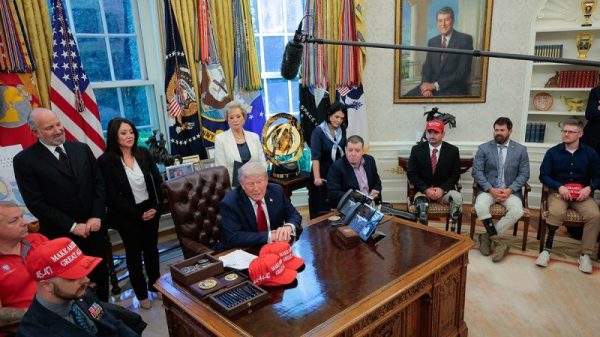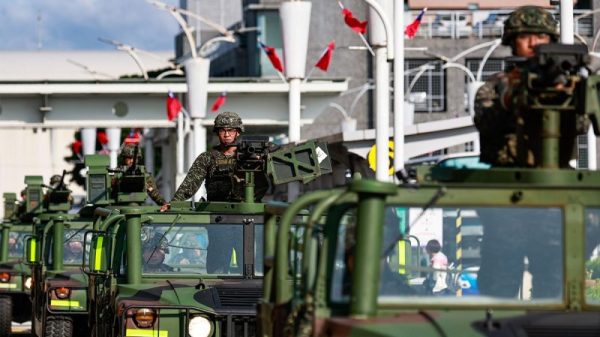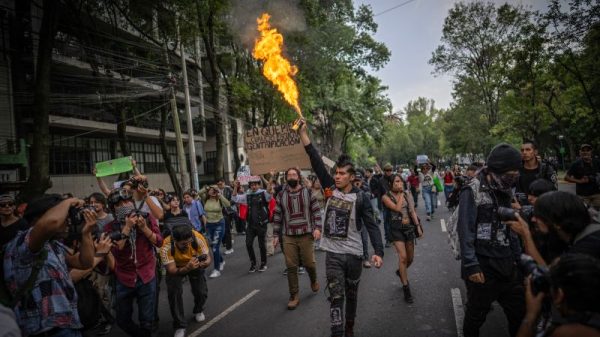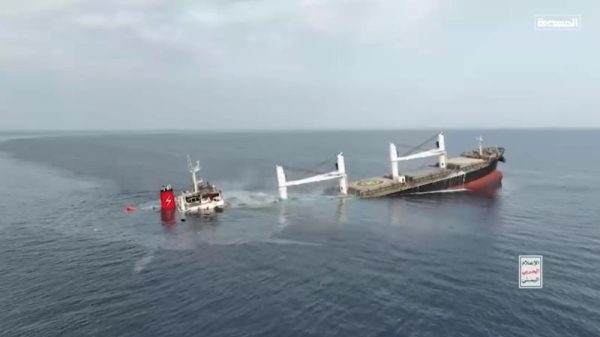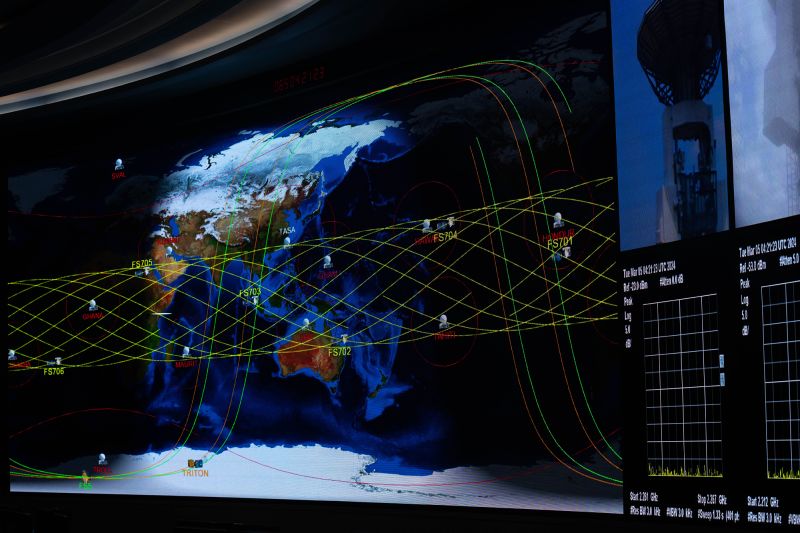Taiwan’s leaders are working on an ambitious new satellite system to keep the island online in case of disaster, as it deals with the constant threat of hostilities with China.
Once the system is up and running, it could work in a similar way to Elon Musk’s Starlink satellite system in providing internet access – albeit at a much smaller scale, said Wu, who has led Taiwan’s space programs since 2021.
Starlink, operated by Musk’s SpaceX, uses a network of thousands of satellites to deliver the internet to users all over the world, including areas where conventional connections are unavailable.
It has been used by Ukraine’s military on battlefronts as it defends against Russia’s invasion. In Gaza, devastated by Israel’s war against Hamas, it has allowed staff at a field hospital to conduct real-time video medical consultations.
But Taiwan does not have access to Starlink because SpaceX insisted on having majority ownership over a proposed joint venture, a demand incompatible with local Taiwanese laws. This was part of the reason Taiwan developed its own technology.
“The communication satellite is very important for our communication resilience during urgent periods,” Wu said, calling it his agency’s most sensitive project. “That’s very important for us, so we take it very, very seriously.”
A vulnerable network
Taiwan’s unique geopolitical landscape and location, about 100 miles off the coast of China, adds urgency to an ambitious project. China’s ruling Communist Party claims the island as part of its territory, and has repeatedly vowed to take it by force, if necessary.
Currently, Taiwan’s connectivity is served by 15 submarine internet cables that link it with the rest of the world. But these cables are susceptible to damage. Last year, a group of outlying Taiwanese islands were cut off from the internet for weeks after two submarine cables connecting them to Taiwan’s main island were damaged by passing ships.
High-speed internet is crucial to the normal function of any society but, in Taiwan’s case, a deliberate attempt to sabotage the system could have other repercussions. In a report published by the Institute for National Defense and Security Research, a Taiwanese government-affiliated research body, experts warned that if Beijing were to cut internet cables around Taiwan, it could disrupt regular communications and cause widespread panic.
Brad Tucker, an astrophysicist at Australian National University, estimated that Taiwan would need at least 50 satellites to provide “fairly decent” emergency coverage with its own satellite constellation – and the more the better.
“In order to really have the reliability bandwidth, so that everyone can service it, you’re going to need quite a lot more [satellites], you’re probably talking about in the hundreds,” he said.
“If a country is dedicated to it, it could definitely complete it,” he added. “Because the hard part is really just getting the funding to launch them all.”
Su Tzu-yun, a director of Taiwan’s Institute for National Defense and Security Research, said while it would be “unrealistic” to think Taiwan would be able to provide all-round internet coverage with just a few indigenous satellites, the space project is valuable in the long run.
“Taiwan’s development in this area is very meaningful, because it allows us to enter the space industry and provides greater flexibility for our military to access communication systems in our weapons development in the future,” he said.
And before Taiwan achieves that capability, the island can still provide backup connectivity in the foreseeable future by partnering with OneWeb, a satellite communications system headquartered in London, and other maritime satellite systems, he added.
Bolstering resilience
Ensuring that Taiwan’s communication systems stay functional in extraordinary times has been a growing priority for the island’s top leaders in recent years. Besides tasking the space agency with the satellite project, the Taiwanese government established a digital affairs ministry in 2022 to boost communication resilience. That ministry has been partnering with overseas satellite service providers and installing new terminal equipment in remote locations of Taiwan to provide connectivity.
By the end of 2024, 700 hot spots will be established across the island to allow for satellite communications during emergency situations, authorities announced in March. The initiative proved useful during a magnitude 7.4 earthquake that hit eastern Taiwan in early April.
While traditional communication systems were disrupted near the epicenter, authorities successfully used OneWeb to provide emergency internet access for rescuers and stranded personnel.
In the future, Taiwan’s satellite system could replace third-party deals, but Wu, the space agency director, declined to provide more specific details about the project’s timeline. According to people familiar with the matter, the new administration is set to release an updated blueprint and timeline of its space programs, including its communication satellite project, after Taiwan’s President-elect Lai Ching-te takes office on May 20.
Big ambitions in space
Taiwan’s space ambitions extend beyond developing indigenous communication satellites.
Wu said a key objective has been to create a new industry in Taiwan that can capture growing opportunities in space projects internationally. Last year, President Tsai Ing-wen announced a NT$25.1 billion ($790 million) investment in the island’s space programs in the coming decade, with the goal of assisting companies in various industries – including chip design and precision machinery – to enter the space industry.
Despite its relatively small size, Wu believes Taiwan is a desirable location to develop space projects because of its undisputed role as a leader in advanced semiconductor chips – which are needed to power everything from computers to artificial intelligence.
One Taiwanese firm in particular, Taiwan Semiconductor Manufacturing Company (TSMC), produces an estimated 90% of the world’s super-advanced semiconductors and supplies to global tech giants such as Apple and Nvidia.
Besides semiconductors, Wu believes Taiwan’s advances in information technology and precision machinery also provide advantages to the development of its space industry.
“Satellites are very complicated systems,” he said. “In a satellite, you have 20,000 to 30,000 components. Once you send it into space, there is no way you can call it back and repair it, so it’s very tough, and it’s very expensive.”
To accelerate its development, Taiwan’s space agency has also been working to develop a rocket system that can launch satellites into space. Taiwan has relied on overseas providers to send its satellites into space, such as the Triton, an indigenous weather satellite launched last year from French Guiana in South America.
“We are working on a launch vehicle, and we intend to launch rockets into our low-Earth orbit starting in 2030,” Wu said, referring to satellite orbits with an altitude lower than 1,000km above Earth. Once Taiwan possesses that technology, it will be able to conduct test flights more frequently.
“We do have a solid foundation, and right now, I think we are ready to take on the adventure more aggressively,” he added.

